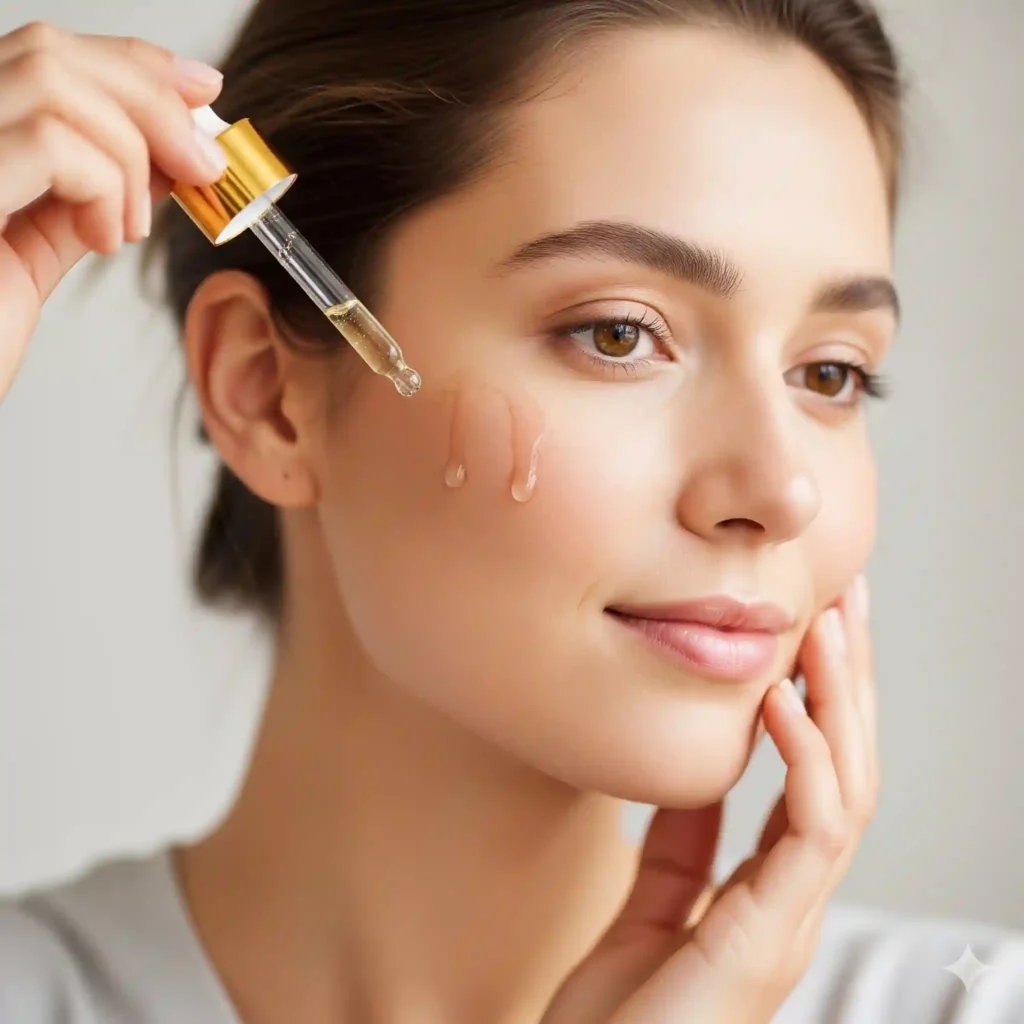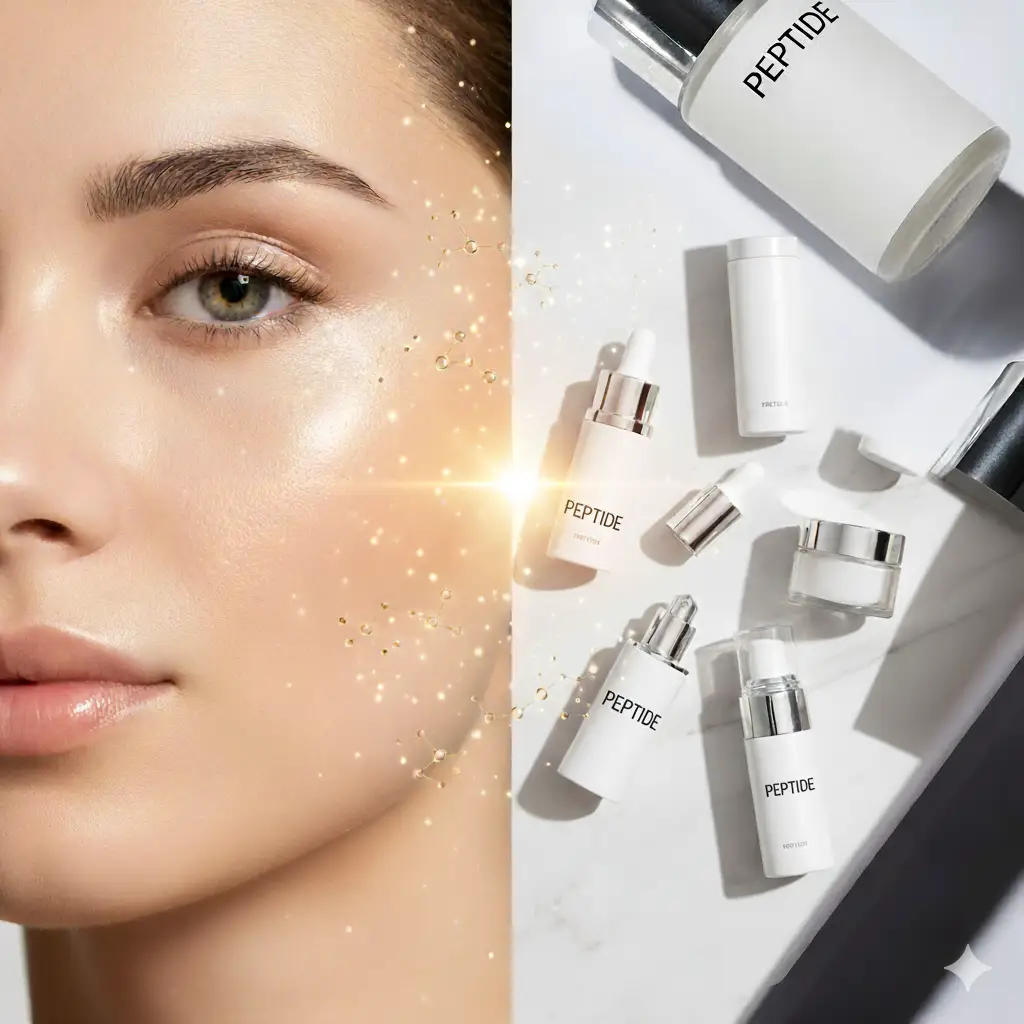Table of Contents
Your Guide to the Best Anti-Aging Skincare Ingredients
Aging is natural process, but with science and right skincare we can slow down the visible signs- like wrinkles, fine-lines and dullness. Although beauty trends may come and go, science has identified certain ingredients which truly make a difference. These research-backed active ingredients increase collagen, improve elasticity, reduce free radicals, and restore radiance. Time, money, and frustration can be eliminated if we focus on proven ingredients rather than just trying every new product. Dermatologists around the world rely on these essentials, that include everything from retinol and vitamin C to hyaluronic acid and peptides. Let’s explore the top 7 effective anti-aging skincare ingredients supported by science.

Retinol for Anti-Aging Skincare
Retinol is a form of vitamin A. It is one of the most researched ingredients in skincare, which helps the skin to renew itself faster. Retinol helps in boosting collagen production and smooths fine lines and wrinkles. That’s why it is considered one of the most important anti-aging tools.
Retinol is available in the forms of cream and serum. Studies show that it can improve natural aging signs like sun-damaged skin, even out skin tone, and make skin firmer over time.
Retinol is also helpful for acne, it keeps pores clear and reduces breakouts.

However, retinol can cause dryness, peeling, or redness when you first start. To avoid this, dermatologists suggest beginning with a low strength (0.1–0.3%), applying it only at night, and always using sunscreen during the day. Retinol makes skin more sensitive to sun exposure.
With regular use, retinol can make smoother, brighter, and healthier-looking skin; that’s why it’s found in so many popular anti-aging skincare products today.
Vitamin C benefits in Anti-Aging Skincare
Vitamin C (ascorbic acid) is one of the most popular and researched skincare ingredients. It is widely Known for its antioxidant property. Vitamin C protects the skin from free radicals caused by sun exposure and pollution, that speed up aging. Regular use of vitamin C serums help to brighten dull skin, fade dark spots, and even out skin tone. Thus it is considered as a powerful ingredient for tackling hyperpigmentation.
Another major benefit of vitamin C is its role in collagen production. Collagen, which naturally decreases with age, keeps our skin firm and youthful by reducing fine lines and improving skin elasticity. Studies show that vitamin C supports in collagen synthesis.

However, vitamin C is unstable and breaks down in air, light, or heat exposure. That’s why dermatologists recommend using stable formulations like L-ascorbic acid (10–20%) in dark, airtight bottles.
Vitamin C can give your skin a brighter, firmer, and healthier glow with consistent use. This way it has earning its place as anti-aging skincare essentials.
Hyaluronic Acid for Anti-Aging Skincare and Skin Hydration
Hyaluronic acid (HA) can be referred to as the skin’s natural moisture magnet. It is a sugar molecule that naturally occurs in our skin, which has the unique capacity of holding water. You can say it is like a sponge that keeps your skin plump, soft, and hydrated.
HA doesn’t directly remove wrinkles. Well-hydrated skin looks smoother and more youthful, which makes fine lines less noticeable. Clinical studies show that applying HA topically can significantly improve skin hydration and elasticity; that’s why it’s found in so many serums, creams or other formulations.

The best part is HA generally suits almost every skin type, including sensitive or acne-prone skin—because it’s lightweight and non-irritating. For maximum benefit, you can apply it to damp skin and then apply a good moisturizer. HA can bring back that healthy, radiant glow to your dry or tired skin.
Niacinamide: The Multi-Tasking Anti-Aging Skincare Ingredient
Niacinamide, which is also known as Vitamin B3, is one of the most versatile ingredients in a daily skincare routine. It helps to reduce fine lines, improves skin elasticity, strengthens the skin’s protective barrier, and can even calm redness. Thus, Niacinamide works like a true multitasker. While some ingredients can be harsh, niacinamide generally suits most skin types.
Niacinamide is especially popular because of its ability to target multiple concerns at once. Research shows that using topical niacinamide for 12 weeks improved fine lines and wrinkles, reduced hyperpigmentation. It also helps to regulate oil production, which makes it beneficial for acne-prone or combination skin.

So, whether you’re worried about early visible signs of aging, redness, or uneven tone, niacinamide can fit easily into almost any routine. It is a gentle yet powerful ingredient in anti-aging skincare that works nicely to keep your skin healthy and balanced.
Peptides in Anti-Aging Skincare
Peptides are a short chain of amino acids which are linked by peptide bonds. They naturally occur in skin and are building blocks for many proteins like collagen and elastin. Nowadays, peptides are added to skincare products like serum, creams, lotions, which boost the skin to produce more collagen.
Collagen is necessary for a firmer, radiant, younger-looking skin. Collagen production is reducing with our growing age. So, adding peptides to your skincare routine helps to repair skin, reducing wrinkles and fine lines, making skin plumper and firmer.

Peptides also form elastin, which improves skin elasticity, making skin look firmer. A Study shows that peptides improved skin smoothness and reduced wrinkle depth after consistent use for two weeks. So, peptides are considered a powerful tool in anti-aging skincare that boost collagen and elastin, which helps skin to stay firm, smooth, and youthful.
Alpha Hydroxy Acids (AHAs) benefits in Anti-Aging Skincare
Alpha Hydroxy Acids, commonly known as AHAs, generally help to exfoliate our skin. AHAs like glycolic, lactic, malic, tartaric, and citric acids are used as peeling agents. These gentle acids are widely used in skincare because they remove dull and dead cells from the surface and exfoliate the skin. They are also popular in skincare products for making even-toned, smoother, fresher and brighter skin.

Besides exfoliating, AHAs help to boost collagen, reduce fine lines and wrinkles. They also help to brighten skin’s complexion. Thus, AHAs supports long-term anti-aging benefits with regular use in cleansers, toners, or serums.
Polydeoxyribonucleotide (PDRN) in Anti-Aging Skincare
Polydeoxyribonucleotide, or PDRN, is a skin-healing anti-aging ingredient that is derived from salmon DNA. It helps to repair and rejuvenate tired skin, thus, it has quickly become a favorite in Korean skincare and dermatology. PDRN helps to stimulate cell growth, promote collagen production, and improve tissue repair or wound healing—all of which are vital for youthful and radiant skin. It is especially effective for people dealing with post-procedure recovery, damaged skin, or visible signs of aging like fine lines, wrinkles and sagging.

With growing research, PDRN continues to prove itself as one of the most promising anti-aging ingredients in modern skincare.
👉 Want to learn more? Read our full blog: PDRN in Skincare: The Science Behind the “Skin Healer” Trend
Final Thoughts
We can’t stop getting older, but we can take steps to keep our skin looking healthy and fresh. Simple ingredients like retinol, vitamin C, hyaluronic acid, and niacinamide really make a difference when used regularly. Newer ingredients like PDRN are also showing great results in repairing and renewing the skin.
At the end of the day, good skincare is about balance. Sunscreen is must—it’s the best way to prevent early wrinkles and pigmentation. A few smart products, a balanced diet, good sleep, and less stress can all work together to keep your skin glowing. It’s not about looking younger than your age, but about feeling confident in your own skin.
FAQs
Which ingredient is best for anti-aging?
There is not just one product. Retinol, vitamin C, hyaluronic acid, peptides, niacinamide, AHAs, and PDRN all work in different ways. The best choice depends on your skin concerns. ((wrinkles, dullness, dryness, or sagging).
Can I use retinol and vitamin C together?
Dermatologists usually recommend applying vitamin C in the morning (for antioxidant protection) and retinol at night (for repair). Using them together at the same time may cause irritation for sensitive skin.
Are AHAs safe for daily use?
Stronger exfoliators are not recommended for daily use. It is best to use them 2 or 3 times a week to avoid over-exfoliation.
What does hyaluronic acid do?
Hyaluronic acid deeply hydrates the skin. It plumps the skin and makes visible wrinkles and fine lines look smoother.
How long does it take to see results from peptides or niacinamide?
With consistent use, visible improvements in skin texture and elasticity are often seen after 8–12 weeks.
Disclaimer: This article is for informational purposes only and not intended as medical advice. For personalized advice or before trying new skincare products or treatments, please consult a dermatologist or healthcare professional.
👉Explore the connection between inner wellness and outer beauty in our blog.


